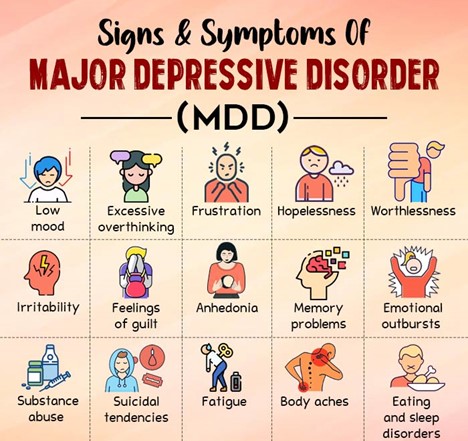A nurse is caring for a client who has major depressive disorder and attempted suicide. The client tells the nurse, "I should have died because I am totally worthless." Which of the following responses should the nurse make?
"You've been feeling that your life has no meaning."
"You have a great deal to live for."
"It's not unusual for depressed people to feel that way."
"Why do you feel you are worthless?"
The Correct Answer is A
A. "You've been feeling that your life has no meaning."This response reflects active listening and acknowledges the client's emotions. It reflects the client's feelings and encourages them to express more about their emotions and thoughts. It shows empathy and understanding, which can help build trust and rapport.
B. "You have a great deal to live for" may seem dismissive and does not address the client's current feelings of worthlessness.
C. "It's not unusual for depressed people to feel that way" can come across as minimizing the client's unique experience and does not provide support or encourage further discussion.
D. "Why do you feel you are worthless?" might make the client feel defensive or overwhelmed, and it does not offer the same level of empathy and support as reflecting their feelings would.

Nursing Test Bank
Naxlex Comprehensive Predictor Exams
Related Questions
Correct Answer is A
Explanation
Remaining with the client provides support and ensures their safety. The client's behavior indicates distress, and having a nurse nearby can help the client feel more comfortable and secure.
B. Give the client a PRN sleeping medication:
Explanation: Administering a sleeping medication should not be the first response, especially if the client is agitated. It's important to address the underlying cause of the agitation and consider other interventions before resorting to medication.
C. Encourage the client to go back to bed:
Explanation: Encouraging the client to go back to bed might not be effective if they are experiencing significant distress or anxiety. It's better to address their emotional state first before suggesting any changes in activity.
D. Explore alternatives to pacing the floor with the client:
Explanation: This is a reasonable course of action. Exploring alternatives to the client's current behavior can help address their distress and find ways to manage their emotions more effectively.
Correct Answer is B
Explanation
Gabapentin and phenytoin are not directly associated with causing vitamin B deficiencies. However, certain antiseizure medications could potentially affect nutrient absorption over time.
B) A client who has chronic alcohol use disorder.
Explanation:
Chronic alcohol use disorder can lead to a deficiency in several B vitamins, particularly vitamin B1 (thiamine), vitamin B2 (riboflavin), vitamin B3 (niacin), vitamin B6 (pyridoxine), vitamin B9 (folate), and vitamin B12 (cobalamin). Alcohol interferes with the absorption and utilization of these vitamins in the body, and individuals with alcohol use disorder are often at risk for malnutrition and vitamin deficiencies.
C) A client who takes heparin to prevent deep vein thrombosis:
Heparin is an anticoagulant and does not directly impact the absorption or utilization of vitamin B.
D) A client who has asthma:
Asthma itself does not significantly increase the risk of vitamin B deficiencies. Vitamin B deficiencies are more commonly associated with factors like malnutrition, certain medical conditions, or medications that impact absorption, as seen in chronic alcohol use disorder.
Whether you are a student looking to ace your exams or a practicing nurse seeking to enhance your expertise , our nursing education contents will empower you with the confidence and competence to make a difference in the lives of patients and become a respected leader in the healthcare field.
Visit Naxlex, invest in your future and unlock endless possibilities with our unparalleled nursing education contents today
Report Wrong Answer on the Current Question
Do you disagree with the answer? If yes, what is your expected answer? Explain.
Kindly be descriptive with the issue you are facing.
